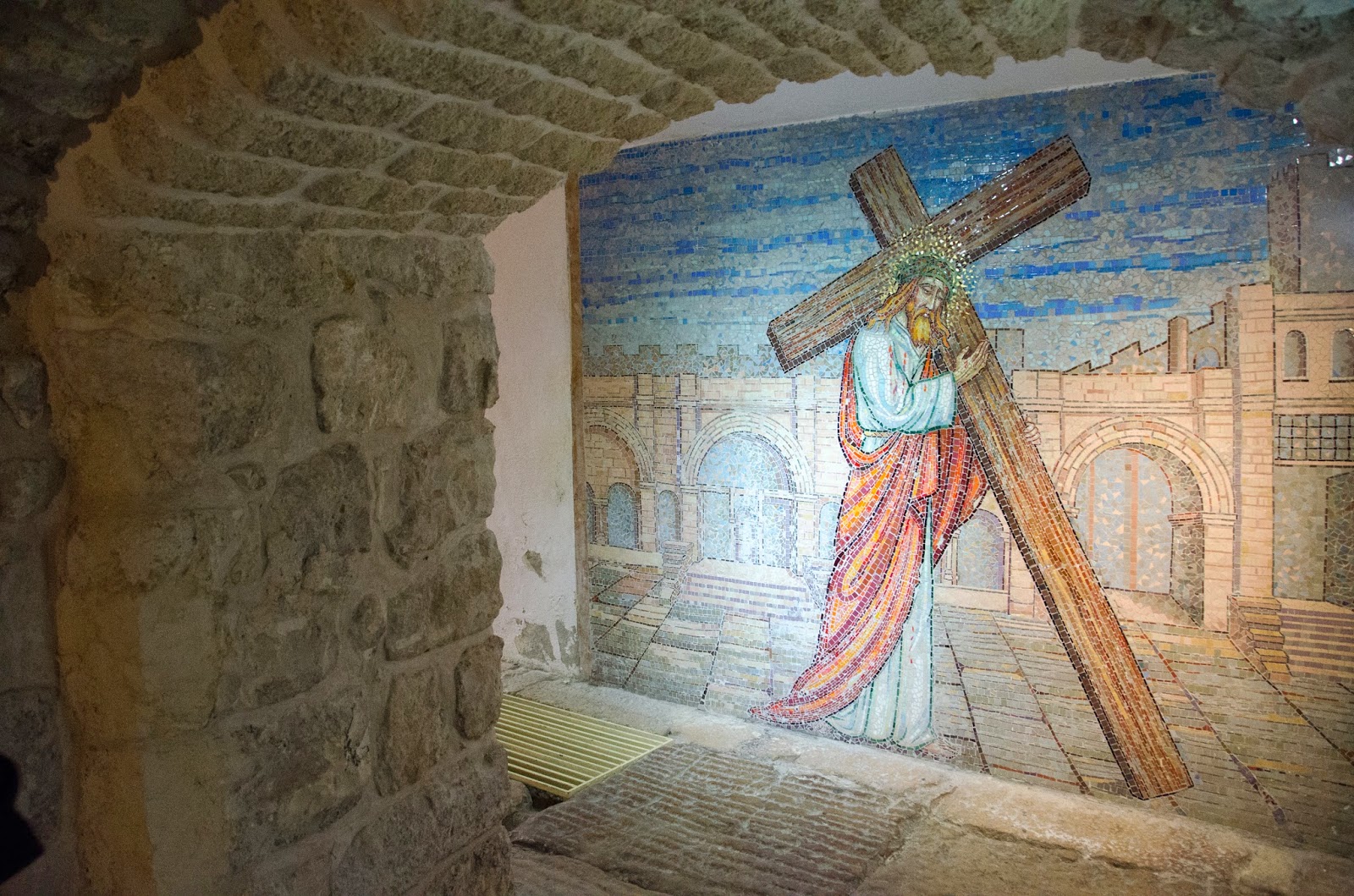Mark 15:33-41
And when the sixth hour had come, there was darkness over the whole land until the ninth hour.
And at the ninth hour Jesus cried with a loud voice, “Eloi, Eloi, lema sabachthani?” which means, “My God, my God, why have you forsaken me?”
And some of the bystanders hearing it said, “Behold, he is calling Elijah.”
And someone ran and filled a sponge with sour wine, put it on a reed and gave it to him to drink, saying, “Wait, let us see whether Elijah will come to take him down.”
And Jesus uttered a loud cry and breathed his last.
And the curtain of the temple was torn in two, from top to bottom.
And when the centurion, who stood facing him, saw that in this way he breathed his last, he said, “Truly this man was the Son of God!”
There were also women looking on from a distance, among whom were Mary Magdalene, and Mary the mother of James the younger and of Joses, and Salome. When he was in Galilee, they followed him and ministered to him, and there were also many other women who came up with him to Jerusalem.
Comments:
How will Jesus respond to all the pain, rejection, and humiliation he was experiencing?
While the account here in Mark is characteristically brief, when we read the Gospels horizontally we can build a rather detailed harmony containing all of Jesus' statements from the cross that shows us how he responded. However, in this gospel characterized by action, and written for a Roman audience perhaps the key is the response of the Roman centurion, “Truly this man was the Son of God!” Whatever he saw in word and deed was enough to convince the previously hostile Roman soldier that this innocent man was also "the Son of God". Here is a classic cameo of John Wayne as the Centurion, "Awww, truly, this man was the Son of God."
Certainly, this would have been the hope of the Evangelist that those who would see Jesus’ actions through the pages of this gospel would come to the same conclusion. As we have read through the Gospel of Mark together over the last several months, what conclusions have we come to about Jesus Christ? Is he who he said he was or just a crazy messianic "wannabe"? He can't be merely a good teacher or a prophet. He is either a liar, a lunatic, or the Lord! I have come to believe that it is the latter! He has saved me by his own blood.
------------------------------------------------------------
Just in case you wanted me to harmonize Jesus’ seven last sayings on the cross (which have been the subject of many great sermons) see the list below.
- “Father, forgive them, for they know not what they do.” (Luke 23:34) It’s not surprising to me that the first word on the cross is a prayer, for God to forgive those who were so cruelly abusing him.
- “Truly, I say to you, today you will be with me in Paradise.” (Luke 23:43). This second word was an answer to prayer, that of a single individual. The one thief who realized that he was getting what he deserved for his crimes but that Jesus was innocent…and the rightful king.
- "Dear woman, here is your son," and to the disciple, "Behold, your mother." (John 19:26-27) Jesus, as the eldest son took a moment, even in excruciating pain and struggling to breathe on the cross, to care for his mother. He gives her into the care of the Apostle John.
- “Eloi, Eloi, lema sabachthani?” which means, “My God, my God, why have you forsaken me?” (Matthew 27:46; Mark 15:34) Jesus felt forsaken on the cross because he took all our sin upon himself and in that moment felt a separation from the Father that he had never previously known.
- “After this, Jesus, knowing that all was now finished, said (to fulfill the Scripture), ‘I thirst.’” (John 19:28) This is the culmination of what we call “the Passion of Christ.” It is important to realize that passion does not mean "feelings of love" but rather experiencing "suffering & agony." Christ's suffering (passion) was the price God's love paid to buy us back from our own destruction.
- “It is finished.” (John 19:30; likely the “loud cry” of Mark 15:37). The single Greek word Jesus spoke here (tetelestai) was the word stamped on a bill when it is paid in full, or on a prisoner’s list of charges when all their time in prison has been served.
- “Father, into your hands I commit my spirit!” (Luke 23:46; John 19:30) Jesus wasn’t murdered; John makes it clear that he gave up his life willingly. From the circumstances at his arrest, to his conduct at his trial, and finally in the dismissing of his own spirit, Jesus is seeing to surrender his life for us willingly.





No comments:
Post a Comment
Comments on these posts are welcome, however, they will be moderated. Your comment will appear after the blog administrator approves it. Thanks for your patience!